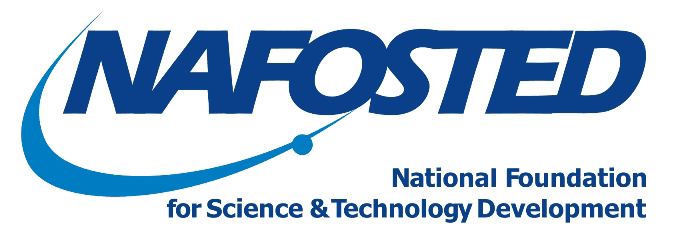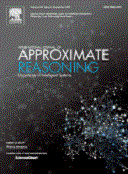| |
||||||
| 30 November – 2 December 2016, Da Nang, Vietnam | ||||||
Hiroshi Mamitsuka (Kyoto University, JAPAN)
Title: Machine Learning Applications: Past, Present and Future
Machine learning is data-driven and so application-driven technology always seeking real problems. Interestingly in the beginning, techniques currently considered as part of machine learning, were developed in other domains mainly. A typical example is hidden Markov model (HMM), which was extensively studied for speech recognition while not necessarily in machine learning community. HMM is now technically well matured and commonly used not only for speech but in many other applications including biological sequence alignment. This type of "machine learning" can be found in classical applications, such as natural language processing, computer vision and pattern recognition. Currently, due to the era of Internet, big data and big science, machine learning applications are much broader, covering numerous fields, such as science, engineering, economics and other many aspects of our society. Particularly commercial or business-oriented applications are weighted more, being part of or data mining itself. The question is on future. In this talk, I'd like to review the past and present applications of machine learning, and also shed light on possible and promising future applications, which are already gradually coming out.
Bio
Hiroshi Mamitsuka is a Professor of Bioinformatics Center, Institute for Chemical Research, Kyoto University, being jointly appointed as a Professor of School of Pharmaceutical Sciences of the same university. Also currently he is a FiDiPro (Finland Distinguished Professor Program) Professor of Department of Computer Science, Aalto University, Finland. His present research interest includes a variety of aspects of machine learning and diverse applications, primarilly cellular- or molecular-level biology, chemistry and medical sciences. He has published more than 100 scientific papers, including those appearing in top-tier conferences or journals in machine learning and bioinformatics, such as ICML, KDD, ISMB, Machine Learning, Bioinformatics, etc. Also he has served program committee member of numerous conferences and associate editor of several well-known journals of the related fields. Prior to joining Kyoto University, he worked in industry for more than ten years, mainly data analytics in business sectors, for example, customer/revenue churn, web-access pattern, campaign management, collaborative filtering, recommendation engine, etc. So after moving to Kyoto University, he has worked as research advisor on data mining of several enterprises.
Katsuhiro Honda (Osaka Prefecture University, JAPAN)
Title: Fuzzy Co-clustering and Application to Collaborative Filtering
Cooccurrence information analysis became more popular in many web-based system analysis such as document analysis or purchase history analysis. Rather than the conventional multivariate observations, each object is characterized by its cooccurrence degrees with various items, and the goal is often to extract co-cluster structures among objects and items, such that mutually familiar object-item pairs form a co-cluster. A typical application of co-cluster structure analysis can be seen in collaborative filtering (CF). CF is a basic technique for achieving personalized recommendation in various web services by considering the similarity of preferences among users. In this talk, I'd like to introduce a fuzzy co-clustering model, which is motivated from a statistical co-clustering model, and demonstrate its applicability to CF tasks following a brief review of the CF framework.
Bio
Katsuhiro Honda is a professor of the Department of Computer Science and Intelligent Systems, Graduate School of Engineering, Osaka Prefecture University, Japan. His research interests include hybrid techniques of fuzzy clustering and multivariate analysis, data mining with fuzzy data analysis, and neural networks. He has published more than 100 scientific papers, including those appearing in such journals as IEEE Transactions on Fuzzy Systems, International Journal of Approximate Reasoning, etc. He received the Outstanding Book Award (2010), the Best Paper Award (2002, 2011, 2012) and so on from the Japan Society for Fuzzy Theory and Intelligent Informatics, and delivered a tutorial lecture at the 2004 IEEE International Conference on Fuzzy Systems.
Akira Namatame (National Defense Academy of Japan; Asian Office of Aerospace Research & Development (AOARD), US Air Force Research Laboratory (AFRL))
Title: Autonomous Systems: Many Possibilities and Challenges
Our lives have been immensely improved by decades of automation technologies. Most manufacturing equipment, home appliance, cars and other physical systems are somehow automated. We are more comfortable, more productive and safer than ever before.
Without automation, they are more troublesome, more time consuming, less convenient, and far less safe.
Systems that can change their behavior in response to unanticipated events during operation are called autonomous.
Autonomous systems generally are those that take actions automatically under certain conditions.
They can be thought of as self-governing systems capable of acting on their own within programmed boundaries. Depending on a system's purposes and required actions, autonomy may occur at different scales and degrees of sophistication. The capability of such autonomous systems and their domains of application have expanded significantly in recent years. These successes have also been accompanied by failures that compellingly illustrate the real technical difficulties associated with seemingly natural behavior specification for truly autonomous systems. The autonomous technology also holds the potential for enabling entirely new capabilities in environments where direct human control is not physically possible. For all of these reasons, autonomous systems technology is as an important element of its science and technology vision and a critical area for future development.
Autonomy is a growing field of research and application. Specialized robots in hazardous environments and medical application under human supervisory control for space and repetitive industrial tasks have proven successful. However, research in areas of self-driving cars, intimate collaboration with humans in manipulation tasks, human control of humanoid robots for hazardous environments, and social interaction with robots is at initial stages. Autonomous systems are in their infancy and are capable only of performing well-defined tasks in predictable environments. Advances in technologies enabling autonomy are needed for these systems to respond to new situations in complex, dynamic environments.
Research on autonomy includes many challenging problems and has the potential to produce solutions with positive social impact. Its interdisciplinary nature also requires that researchers in the field understand their research within a broader context. In this talk, I will discuss autonomous technologies that promise to make humans more proficient in addressing such needs. The current status of autonomy research is reviewed, and key current research challenges for the human factors community are described. I will also present a unified treatment of autonomous systems, identify key themes, and discuss challenge problems that are likely to shape the science of autonomy.
Bio
Dr. Akira Namatame is Professor emeritus of National Defense Academy, Japan. He is now Scientific Advisor, Asian Office of Aerospace Research & Development of US Air Force Research Laboratory. His research interests include multi-agent systems, complex networks, artificial intelligence, computational social science, and game theory. In the past ten years, he has given over 35 invited talks, and over 15 tutorial lectures in international conferences and workshops, and academic institutions. He has organized more that 30 international conferences and workshops, and special sessions. He is the editor-in-chief of Springer's Journal of Economic Interaction and Coordination (JEIC), editor in Modeling and Simulation Society Letter. He has published more than 300 refereed scientific papers, together with eight books on multi-agent systems, agent modeling and network dynamics, collective systems and game theory. More detail information can be obtained through www.nda.ac.jp/~nama .
Hung T. Nguyen (New Mexico State University, USA; Chiang Mai University, THAILAND)
Title: On Evidential Measures of Support for Reasoning with Integrated Uncertainty
In view of the recent ban of the use of P-values in statistical inference, since they are not qualified as information measures of support from empirical evidence, we will not only take a closer look at them, but also embark on a panorama of more promising ingredients which could replace P-values for statistical science as well as for any fields involving reasoning with integrated uncertainty. These ingredients include the recently developed theory of Inferential Models, the emergent Information Theoretic Statistics, and of course Bayesian statistics. One main focus of our analysis of information measures is its logical aspect where emphasis will be placed upon conditional (event) logic, probability logic, possibility distributions, and some fuzzy sets.
Bio
Dr. Hung T. Nguyen received the BS degree (1967) from University of Paris XI, the Master degree (1968) from University of Paris VI, and the PhD degree (1975) from University of Lille (France), all in Mathematics. After spending several years at the University of California, Berkeley and the University of Massachusetts, Amherst, he joined the faculty of Mathematical Sciences, New Mexico State University (USA), where he is currently a Professor Emeritus. He is also an Adjunct Professor of Economics, Chiang Mai University, Thailand, and was on the LIFE Chair on Fuzzy Theory at Tokyo Institute of Technology (Japan) during 1992-1993, Distinguished Visiting Lukacs Professor of Statistics at Bowling Green State University, Ohio, in 2002, Distinguished Fellow of the American Society of Engineering Education (ASEE), Fellow of the International Fuzzy Systems Association (IFSA). He has published 16 books, 6 edited books and more than 100 papers. Dr. Nguyen’s current research interests include Fuzzy Logics and their Applications, Random Set Theory, Risk Analysis, and Casual Inference in Econometrics.






